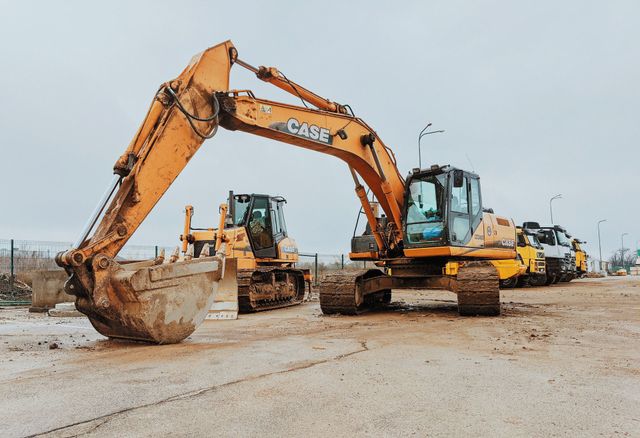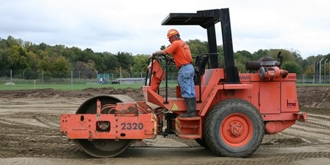Lancaster Trenching - Expert Trenching Solutions in Lancaster, Ohio
Lancaster Trenching - Expert Trenching Solutions in Lancaster, Ohio
Blog Article
Comprehensive Excavation Techniques: Mastering the Basics for Success
The careful planning, precise implementation, and careful interest to detail called for in excavation jobs demand a detailed technique that incorporates various basic elements. The true mastery exists not just in recognizing these basics however in seamlessly integrating them to navigate the intricacies of excavation projects with finesse.
Comprehending Excavation Job Planning

The preliminary phase of any kind of excavation project is the planning stage, where essential decisions are made that can substantially influence the outcome of the project. Comprehending the project scope, budget plan, and timeline constraints is important for producing a comprehensive excavation strategy that makes sure the task's success.
One trick element of excavation job planning is the growth of a comprehensive timeline that details the sequence of tasks, milestones, and target dates. By very carefully thinking about all these elements throughout the preparation phase, excavation jobs can be executed effectively and effectively, leading to effective results - excavating ohio.
Dirt Analysis and Website Evaluation
Carrying out thorough dirt evaluation and site analysis is an important action in the prep work stage of any kind of excavation project. Soil evaluation involves determining the make-up, structure, and buildings of the dirt at the excavation website. This information is vital for recognizing the dirt's bearing capacity, dampness content, and capacity for erosion, which are key consider figuring out the excavation approaches and equipment needed for the job.
Website assessment exceeds soil evaluation and includes a more comprehensive assessment of the general website conditions. This evaluation includes identifying any kind of prospective risks, such as below ground energies, ecological issues, or unpredictable terrain, that can impact the excavation process. By thoroughly examining the site, job managers can develop effective excavation techniques that focus on safety and security, effectiveness, and ecological security.
Utilizing sophisticated innovations like ground-penetrating radar, soil tasting, and drone surveys can improve the accuracy and performance of dirt analysis and website analysis. Spending time and resources in these preliminary actions can ultimately conserve time and stop pricey delays or issues during the excavation procedure.
Devices Selection and Application
Reliable excavation projects count greatly on critical devices choice and application to make sure ideal efficiency and efficiency. Selecting the right devices for the task is important in optimizing efficiency and reducing downtime. Variables such as the type of dirt, deepness of excavation, and task extent play a significant duty in figuring out one of the most suitable devices for the job handy.

Along with picking the ideal tools, correct utilization is key to job success. Operators should be trained to deal with the equipment safely and efficiently - lancaster trenching. Routine maintenance checks and timely repair work help prevent breakdowns and ensure consistent efficiency throughout the task
Safety Steps and Rules Compliance
In the realm of excavation jobs, prioritizing precaution and conformity with guidelines is vital to guaranteeing a protected and legally audio functional setting. Precaution encompass a variety of methods, including performing thorough website assessments, implementing correct signage and obstacles, and supplying sufficient safety and security training for all workers associated with the excavation procedure. Adherence to guidelines, such as OSHA requirements in the USA, guarantees that the excavation task satisfies the essential requirements to protect employees, bystanders, and the surrounding atmosphere.

Surveillance Development and Adjusting Techniques
How can forecast supervisors effectively track the development of excavation projects and adjust their methods accordingly to maximize outcomes? Tracking progression is necessary for ensuring that excavation jobs remain on track and satisfy deadlines.

Verdict
To conclude, grasping the principles of thorough excavation methods is vital for the success of any kind of job. By understanding job preparation, analyzing soil and website problems, selecting suitable equipment, following safety regulations, and keeping an eye on development, project supervisors can ensure a smooth and reliable excavation process. Applying these approaches will bring about successful end results and minimize prospective threats or problems throughout the excavation project.
The first phase of any type of excavation project is the planning stage, where critical decisions are made that can considerably influence the outcome of the job. Recognizing the project spending plan, scope, and timeline restrictions is critical for creating a detailed excavation plan that makes sure the task's success.
How can forecast supervisors properly track the innovation of excavation jobs and adjust their approaches appropriately to enhance end results? By closely checking progression and being willing to adapt methods, task supervisors can boost the general success of excavation projects.
By comprehending project preparation, assessing dirt and website conditions, choosing suitable equipment, complying with safety regulations, and discover this keeping track of progression, project managers can ensure a smooth and reliable excavation procedure.
Report this page